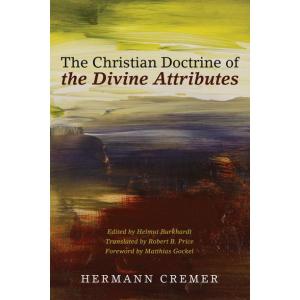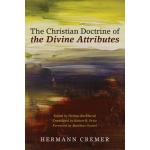God’s Omnipresence According to Hermann Cremer: The Christian Doctrine of the Attributes of God, Part 4: Divine Attributes Implicit in the Concept of God, Seen in the Light of Revelation, 2: The Omnipresence of God (pp. 61-69)
If you are reading with me, and have read this section of the book, feel free to comment. If not, feel free to ask a question. In about a week I will address 3: The Omniscience of God.
In this section, Cremer continues with his theme that we only really know God’s attributes through revelation. Almost all Christians have heard of God’s attributes of omnipotence, omniscience, and omnipresence. Typically, Christians define these as God’s have all power, all knowledge, and all presence. We saw that Cremer defines God’s omnipotence as his “superior strength…of redemption over the self-contained world-system in nature and history.” (56) I said that Barth’s definition of God’s omnipotence is sufficient for me: God’s ability to do anything consistent with his nature. I suspect had Cremer read Barth’s definition he might have said “but of course!”
Cremer defines God’s omnipresence thus: “Although [God] is not present to the world everywhere in the same way, he is present to it everywhere and becomes present to it along the way of world missions just as he does to the congregation.” (62) In other words, as Emil Brunner later said in his Dogmatics, God is present everywhere as the creator and sustainer of the world, but his omnipresence does not mean he is simply spread out evenly through space with no distinctions of that presence.
According to Cremer, anticipating Brunner, “God’s presence does not work the same everywhere, but it works everywhere, even in the misery of God-forsakenness.” (64) In other words, there is a universal presence of God and a “particular, effective presence of God.” (65) Which is why we invite God’s presence (invocation) at the beginning of worship. “Come, Holy Spirit….”
Again, Cremer distinguishes between God’s “saving presence” and his “general world-presence.” (66) Even God’s saving presence has at least two modes: one in the worship of the community of God’s people and the other in and to the individual: “Faith knows in Christ a unique presence of God that is different than his presence in the congregation.” (67)
God is always present, even when someone sins, but God’s presence takes different forms and intensities. That is Cremer’s point. Clearly, Cremer wants to avoid any belief in a single “universal presence of God” that can lead into pantheism.
I find nothing with which to disagree in Cremer’s treatment of God’s omnipresence. I think his distinction of modes of God’s presence is helpful, even necessary. Unfortunately, too few Christians (and others) do not already know about or recognize God’s differing modes, degrees, and intensities of presence. I think Cremer’s view of God’s omnipresence in this section could be turned into a good sermon. If you preach, give it a try. I will.
*Note: If you choose to comment, make sure you read these pages. Otherwise, you may ask a question. In any case, keep your c














